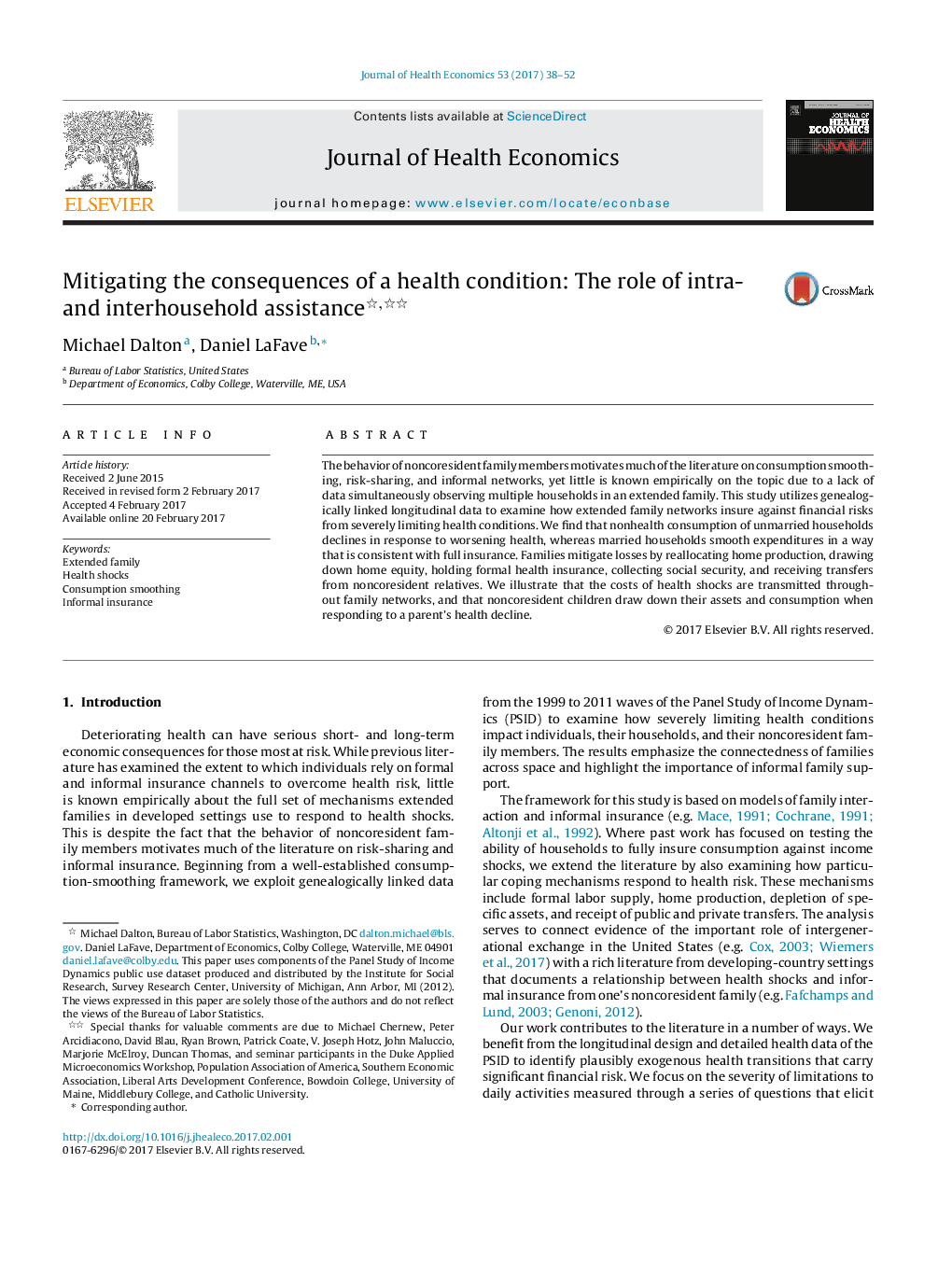| Article ID | Journal | Published Year | Pages | File Type |
|---|---|---|---|---|
| 5100773 | Journal of Health Economics | 2017 | 15 Pages |
Abstract
The behavior of noncoresident family members motivates much of the literature on consumption smoothing, risk-sharing, and informal networks, yet little is known empirically on the topic due to a lack of data simultaneously observing multiple households in an extended family. This study utilizes genealogically linked longitudinal data to examine how extended family networks insure against financial risks from severely limiting health conditions. We find that nonhealth consumption of unmarried households declines in response to worsening health, whereas married households smooth expenditures in a way that is consistent with full insurance. Families mitigate losses by reallocating home production, drawing down home equity, holding formal health insurance, collecting social security, and receiving transfers from noncoresident relatives. We illustrate that the costs of health shocks are transmitted throughout family networks, and that noncoresident children draw down their assets and consumption when responding to a parent's health decline.
Related Topics
Health Sciences
Medicine and Dentistry
Public Health and Health Policy
Authors
Michael Dalton, Daniel LaFave,
